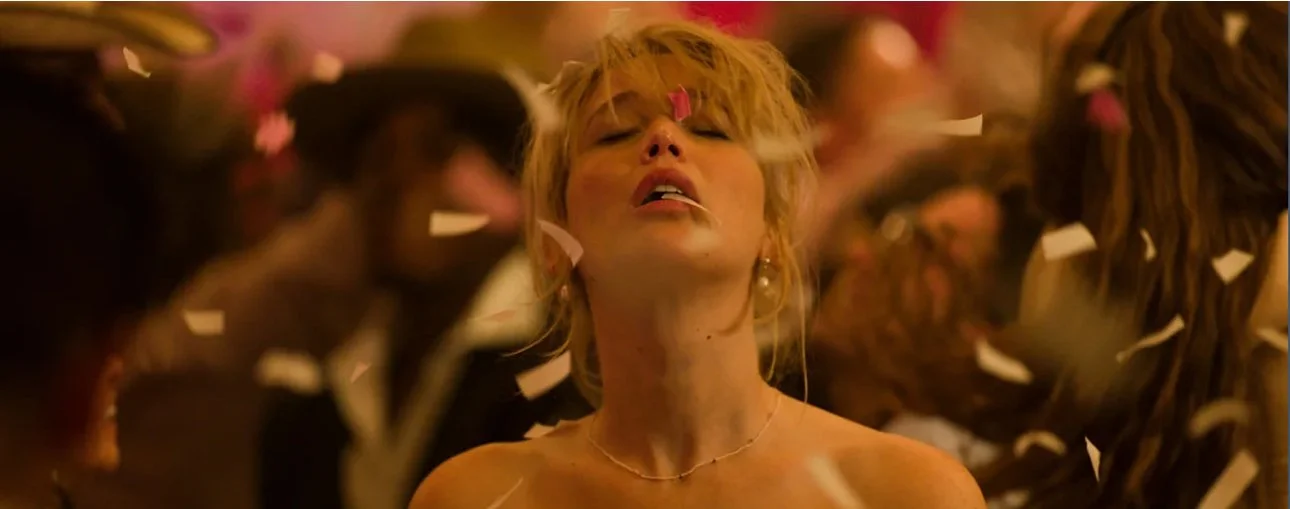“Bad Hair” is Justin Simien’s sophomore effort, following the critically-acclaimed “Dear White People.” Opening the midnight section this year at the Sundance Film Festival, this blend of the socio-political and horror falls mostly flat in its attempt to both provoke and entertain. Set in 1989 L.A., the movie revolves around Anna (Elle Lorraine), working as an assistant on the music video show, “Culture.” She desperately wants a promotion, but sees her dreams evaporate when her boss leaves the company, replaced by Zora (Vanessa Williams, miscast), who wants to revamp the business by, gulp, adhering to white culture. Much to her surprise, Zora does end up giving Anna the promotion that she always wanted, but under one condition: she has to replace her beautiful afro hair with a straight-haired weave. Bad idea. The weave turns out to have a mind of its own, attacking anyone who gets in Anna’s way. The satirical and poignantly topical first half of “Bad Hair” is much more successful than the second half; in fact, both feel like drastically different movies. In its second hour, things start to fall apart when Simien decides to inject slasher film tropes into his narrative, blurring the film’s message of black culture being “whitened” for mainstream purposes. Regardless, Lorraine, in her feature debut, shows signs of a talent waiting to blossom. [C]
”Falling” is Viggo Mortensen’s directorial debut, an austere, sometimes rewarding film, which features the absolute worst movie father since James Coburn raised hell in Paul Schrader’s “Affliction.” Drawing on his own upbringing, Mortensen loosely bases “Falling” on the relationship his parents had — toxic alpha father, abiding mother. The highlight of the film is a career-peak performance from Lance Henriksen as Viggo’s on-screen dad, Willis. Shifting back and forth between present day and flashbacks, the toxicity that Willis exudes on screen eventually takes its toll. There’s only so many homophobic, racist, sexist rants one can take, especially in a film such as this one, whose frames are purposely filmed in dull colours to exude on-screen dread. It’s a well-intentioned arthouse character study, but one riddled with puzzling decisions. I would have loved more of the non-linear flashbacks, which better explain the father-son relationship, but we don’t get enough of them, instead we just get toxic rant and after toxic rant from Willis, to the point where enough is enough already. This makes it very difficult to sympathize with Willis when we don’t really know the roots of the hatred indented deep inside of him. Of note, the highlight of the film for me was David Cronenberg’s hilarious cameo as a proctologist. [C]
“You wanna hear a story about why me & this bitch here fell out? It’s kind of long but full of suspense.” And so goes the opening narration In Janicza Bravo’s “Zola,” a movie based on the 144 tweets one @Zolarmoon churned out back in the summer of 2015. In those tweets, Zola ended up venting about the strange events that occurred to her within a 48 hour timeframe. It all started in Detroit, when her recently acquainted BFF Stefanie (Riley Keough), not to mention fellow stripper, invited Zola on a road trip to Tampa for some “dancing.” Of course, things escalated from there as Zola started to realize that this trip to Florida had more to do with Stefanie being pimped around by her handler (Colman Domingo) for some quick cash rather than any actual partying. It doesn’t help that Stefanie’s boyfriend (Succession’s Nichols Braun) is along for the ride but quickly loses his patience when he syees that Stefanie hasn’t quit her ways and is still prostituting herself for money. To say that things escalate further in “Zola” would be an understatement; in fact, the film is all about escalation. There is nary a subtle moment in Bravo’s overtly stylish frames. Bravo is a talented filmmaker and one can imagine that with a better screenplay, she will eventually give us a special film. [B-/C+]
Eliza Hittman is a filmmaker who shows rather than tells. That’s just her style. It might isolate viewers expecting to be told how to think at the movies, but for the rest of us, the gifted writer-director of “Beach Rats” is nothing short of an American indie queen. The 41-year-old Flatbush, NY native has just given us the best film of her career with “Never Rarely Sometimes, Always.” In the film, Hittman means to show us the aches of being a teenage girl today: the joys, the pain, the heartbreak, and, most of all, the vulnerability. 18-year-old Philly native Autumn (astounding acting debut by Sidney Flanigan) finds out that she is 10 weeks pregnant and that the only way to get a legal abortion, without her parents knowing, is to hop on a greyhound bus and go to a New York clinic. She brings along her cousin Skylar (Talia Rider) for moral support, but as the procedure starts to take longer than expected, trouble ensues when they start to run out of cash. With little money and not much knowledge about New York, the two young women endure a vagabond lifestyle, spending nights on streets and subway trains until Autumn can be properly treated. Hittman’s insistence to slowly but surely build up the drama as her movie goes along is a wise decision. Though highly topical and one of the best movies I’ve seen about abortion, the success of the film ultimately lies in the friendship between Autumn and Skylar. Although they rarely verbally articulate anything they're experiencing, the bond they share is the beating heart of this exceptional movie. [A-/B+]




